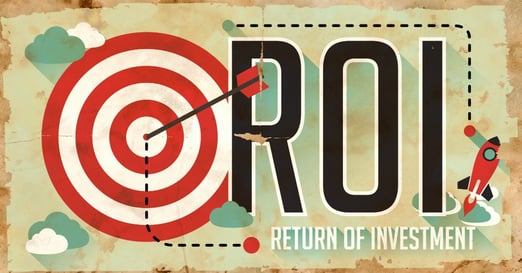For most meeting professionals, it’s not enough to plan a great event. To keep your clients happy, you need to know your event ROI.

You can boost the return on investment of your event by thinking strategically from the beginning. Marketing automation company, Marketo, advises that as you start the planning process, ask yourself some basic questions:
- Are the speakers and topics appropriate for the audience?
- Is the agenda the best it can be?
- Are the date and time of the event optimal?
- Who are appropriate partners for this specific event?
By starting your ROI measurement process prior to your event, you can end up with more detailed feedback that helps you improve over the course of many events. But as your insight grows, you’ll likely find that each of your clients has different definitions of success. To meet the needs of a variety of clients, consider these different approaches to measuring ROI.
Choose a perspective
Looking at your event from different perspectives provides various ways of defining success, notes software maker Attend.
By using an internal perspective, for instance, you can calculate ROI on time and effort of your staff and volunteers. Did you have all the resources you needed to meet stakeholders’ expectations? Was there sufficient time for planning? Did you have adequate staff members present?
Conversely, looking at your event from an external perspective focuses on the ROI for outside stakeholders who have invested in the event. Stakeholders can include attendees, advertisers, speakers, and award recipients. Was each of these groups satisfied with the event? Why or why not?
You can also view your event ROI from a quantitative or qualitative perspective. Using quantitative analysis, you can calculate the monetary ROI for your event. Were you over or under budget? With this information, you can pinpoint areas from which expenses can be cut — and areas that need shoring up — for future events.
Qualitative analysis, on the other hand, provides you with the subjective viewpoint of various stakeholders. While this information doesn’t help in determining monetary ROI, it does give you a general feel for how the event was received. You can gather qualitative analysis data by sending out post-event surveys or simply asking for opinions.
Know your audience
About Money notes that how you measure your event may depend on the area of an organization requesting the measurement. If you’re working with an organization’s financial side, you’ll want to measure the cost and potential financial savings of your event. For example, what did you save on blocks of hotel rooms by negotiating and looking for deals?
If you’re working with a CEO, you may be asked to evaluate how an event contributed to an overall business plan. For instance, your event might be part of a product launch that crosses departments within a company.
Nearly all clients will want your critical assessment of how the event fared overall. What went well, and what needs improvement for next time? Were attendees pleased with the event content and setup? Did the event come in under budget? And regardless of your client’s area of expertise, she likely will want a breakdown of ROI from the point of view of both participants and the sponsoring organization.
Set the stages
To gather the maximum amount of data that can assist in calculating event ROI, plan to measure at various points before and during your event.
Before the event
Early in your planning process, conduct a discovery phase in which you work with key stakeholders to define certain parameters for the event, including strategic objectives, a general theme for meeting content, and speakers. You should be able to glean this information by asking six to eight questions.
A pre-event survey sent to some of your prospective attendees also can provide information that will be valuable for both planning and assessment after the event. The survey should ask attendees about their concerns and needs on multiple levels to help define benchmarks for later measurement.
Armed with information from stakeholders and prospective attendees, you can design the event with overall objectives in mind and determine how to present key messages.
After the event
Once your event is over, it’s important to survey your attendees to gauge how well the event scored on the benchmarks defined during the planning phase. In addition, you’ll need to measure your event’s impact on the sponsoring organization or company in both financial and non-financial terms.
Go simple or sophisticated
Calculating ROI doesn't have to get complicated. At the very least, consider tracking basic statistics like the number of people registered, the number of attendees, and the no-shows, Marketo advises.
To go a step better, measure leads by where they stand in your client's revenue cycle. And to maximize your data collection on event ROI, you can track the number of opportunities created by your event, the cost per opportunity, and other sales-related metrics. This type of information works best in conjunction with an overall program for tracking a sales pipeline generated from various lead sources.
Whatever method you choose, know your event ROI
Whether you go simple or sophisticated, track by event phase, or use qualitative or quantitative analysis — or some combination — tracking ROI for your events is a great idea. Your clients will certainly appreciate the detailed information, and the data will serve as an additional tool for planning compelling events in the future.
Sources
http://blog.marketo.com/2013/01/the-roi-of-events-what-you-should-be-measuring.html
http://eventplanning.about.com/od/eventplanningbasics/a/event-roi.htm
http://blog.marketo.com/2013/01/the-roi-of-events-what-you-should-be-measuring.html
http://blog.attend.com/calculate-event-roi-for-advancement-professionals


